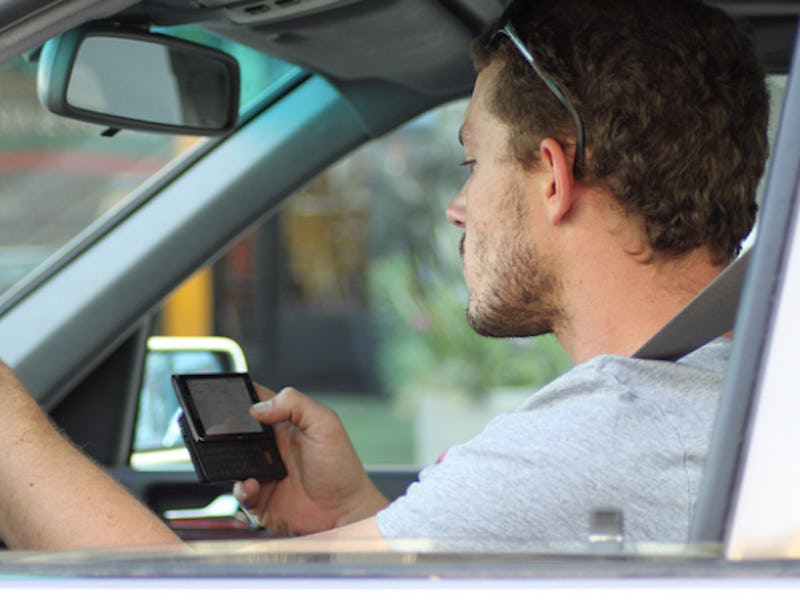Texting and Driving Study Shows That FOMO Is Greater Than the Fear of Death
'FOMO is a powerful motivator of behavior.'

The fear of missing out can be emotionally exhausting, but it can also be physically dangerous. Scientists say that nearly three-quarters of young adults say they’ve experienced all-consuming FOMO, which in turn has been linked to lower levels of general mood and life satisfaction. But according to recent research in the journal Risk Analysis, it can also be linked to a harrowing outcome: car crashes.
Distracted driving causes thousands of fatalities per year, yet many drivers don’t perceive simultaneous texting and driving to be necessarily dangerous, the Australian researchers behind the study show. In the paper, the team cites research that talking on a cell phone increases the risk of crashing by 2.2 times while texting increases risk it by 6.1 times.
In their survey of 447 drivers in Australia, the team attempted to uncover the reasons why people continue to drive distracted even though it’s obviously dangerous. Two of the major reasons people continue texting while driving, the researchers explain in an accompanying statement released Monday, include the sense of separation anxiety and the “fear of missing out” on whatever friends are doing or talking about.
FOMO affects the choice to text while driving.
“FOMO is a powerful motivator of behavior, including smartphone checking behavior,” cyberpsychology researcher Jon Elhai, Ph.D., who was not a part of this research, tells Inverse.
“The finding of smartphone checking despite driving shows participants were engaging in very risky and harmful behavior. Though it is not surprising, as people often know the risk of using smartphones while driving, it does demonstrate that people overestimate their own ability to multitask and think other people are the ones who can’t do this well.”
Elhai, whose own research on FOMO demonstrates that the feeling is driven by a need for a tactile sense of social fulfillment, says that FOMO is most often experienced by younger individuals. This new study links FOMO to young adults as well: In the paper, the researchers show that, the longer a person has a driver’s license, the more likely they are to participate in distracted driving increases..
The survey results also showed that women are more likely than men to use their phones will they drove and that, perhaps unsurprisingly, those who use their phones the most often are the least likely to believe that it will cause them to crash. Overall, the researchers write, 68 percent of the surveyed drivers “reported needing a lot of convincing to believe in the dangers of texting and driving.”
That danger is well documented. In the United States in 2016, approximately 3,450 deaths were linked to distracted driving by the actual driver, while 562 deaths (pedestrian, bicyclists, and others) were caused by distracted drivers.
To combat the problem of texting while driving, the researchers state, more governments need to establish laws that require people to use hands-free devices while in the car. Whether or not there’s an effective way to combat FOMO, meanwhile, remains to be seen.